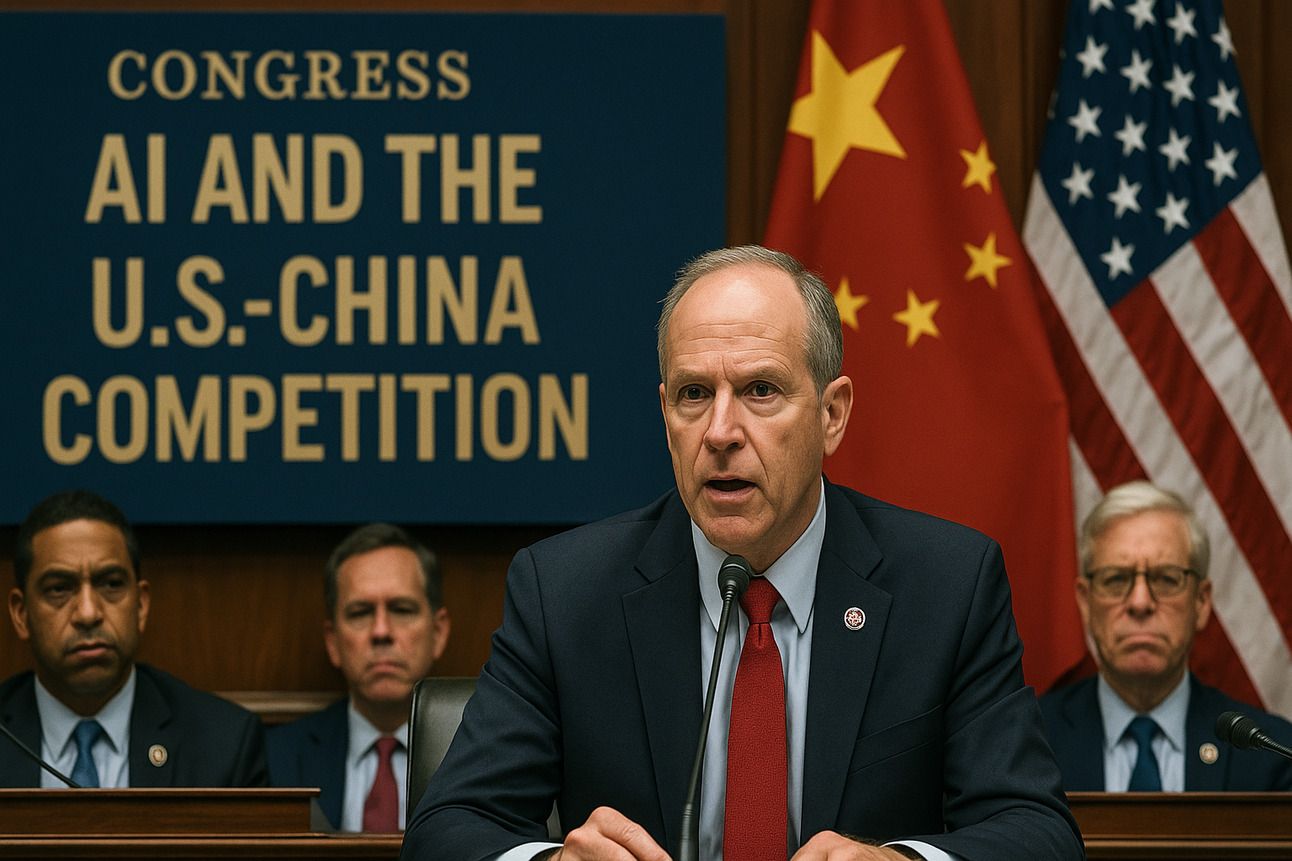
CYBER SYRUP
Delivering the sweetest insights on cybersecurity.
Find out why 1M+ professionals read Superhuman AI daily.
In 2 years you will be working for AI
Or an AI will be working for you
Here's how you can future-proof yourself:
Join the Superhuman AI newsletter – read by 1M+ people at top companies
Master AI tools, tutorials, and news in just 3 minutes a day
Become 10X more productive using AI
Join 1,000,000+ pros at companies like Google, Meta, and Amazon that are using AI to get ahead.
U.S. Lawmakers Push to Ban Chinese AI Systems from Federal Agencies

In a bipartisan effort to safeguard national security and maintain technological leadership, U.S. lawmakers have introduced legislation to block Chinese artificial intelligence (AI) systems from operating within federal agencies. The move reflects growing concerns over China’s rapid advancements in AI and the broader strategic rivalry between the two nations.
AI: The New Strategic Frontier
During a congressional hearing on Wednesday, Representative John Moolenaar (R-Mich.), chairman of the House Select Committee on China, framed the situation starkly:
“We are in a new Cold War, and AI is the strategic technology at the center.”
He emphasized that the global balance of power may hinge on which nation leads in AI development.
These remarks come in response to recent developments, including the emergence of DeepSeek—a Chinese startup whose AI model matches U.S. systems in performance at a significantly lower cost. This has triggered alarms that China may be closing the technological gap, despite export restrictions on advanced chips and critical AI components.
The U.S.-China AI Rivalry
Experts testifying before the committee reinforced the urgency of the situation:
Thomas Mahnken, president of the Center for Strategic and Budgetary Assessments, described the U.S. and China as locked in a “techno-security competition” that will shape the future global order.
Jack Clark, co-founder of Anthropic, warned that AI inherently reflects the values of the society that creates it. “AI built in democracies will lead to better technology for all of humanity. AI built in authoritarian nations will be intertwined with authoritarianism,” he said.
Export Controls and Enforcement Gaps
Witnesses urged lawmakers to bolster export controls on AI-enabling technologies. Clark highlighted the importance of limiting access to high-performance computing chips, stating:
“This competition fundamentally runs on compute.”
Mark Beall, Jr. of The AI Policy Network noted that loopholes in current regulations have allowed China to obtain restricted technologies. A pending bill seeks to track these chips to prevent misuse.
New Legislation: A Hard Line Against Hostile AI
The newly introduced bill, backed by Reps. Ritchie Torres (D-N.Y.) and Darin LaHood (R-Ill.), along with Sens. Rick Scott (R-Fla.) and Gary Peters (D-Mich.), would prohibit the use of AI systems controlled by foreign adversaries within federal agencies.
“Hostile AI systems have no business operating inside our government,” said Rep. Moolenaar.
Rep. Raja Krishnamoorthi (D-Ill.), the committee’s ranking Democrat, echoed the concern, warning that foreign-controlled AI poses direct threats to national security, data integrity, and governmental operations.
While some agencies and states have already banned DeepSeek, the proposed legislation seeks a comprehensive federal ban, with exceptions for research and counterterrorism purposes. The bill would also direct the Federal Acquisition Security Council to identify and assess risky AI systems.
Looking Ahead
The 2025 AI Index Report from Stanford University indicates that the U.S. currently leads in top-performing AI models. However, China is quickly catching up, surpassing the U.S. in research output and patents. As the global AI race intensifies, U.S. lawmakers are pushing to ensure that democratic principles guide the development and deployment of this transformative technology.

